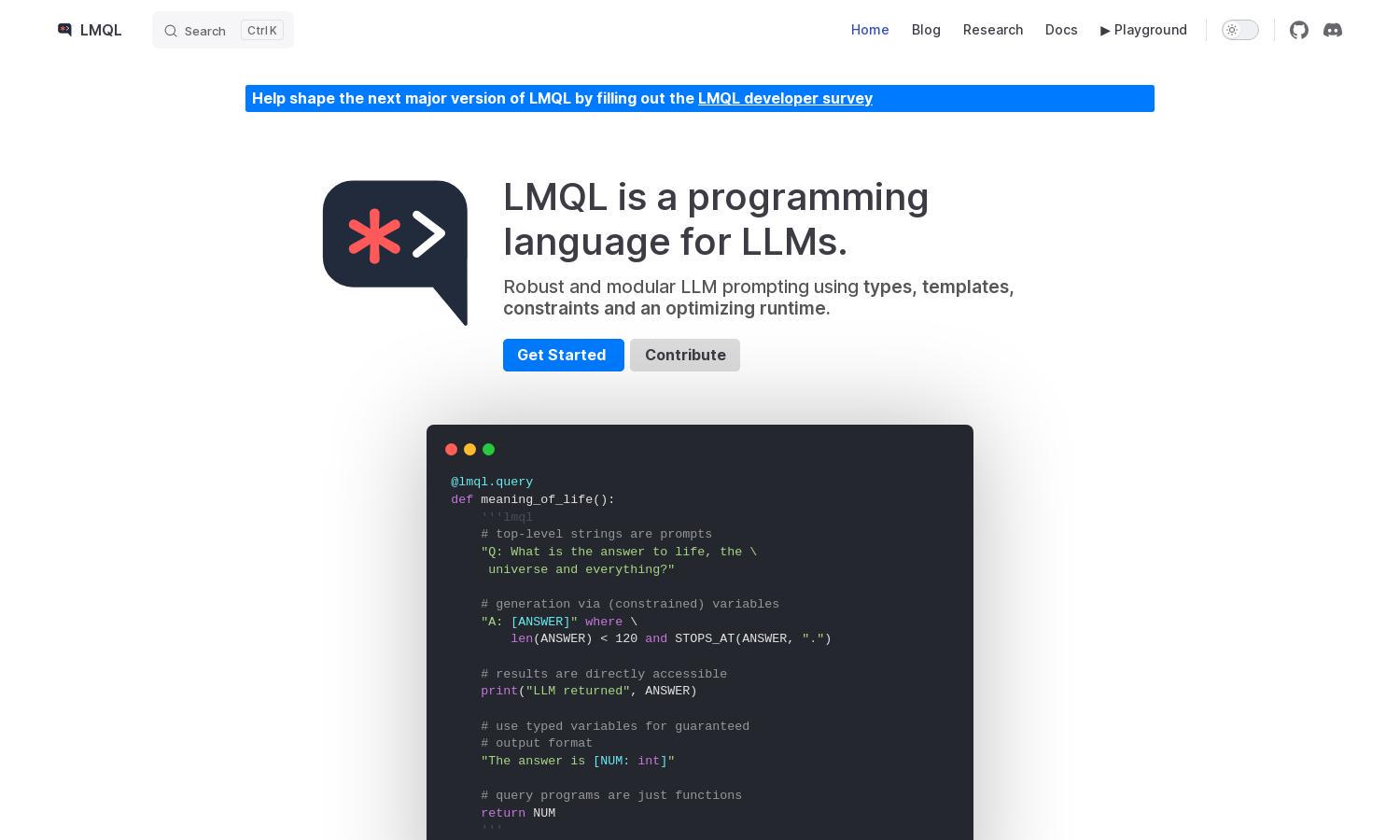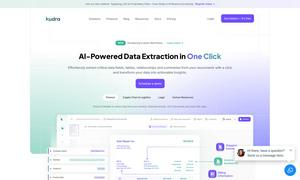LMQL

About LMQL
LMQL is a cutting-edge programming language for seamless interaction with large language models (LLMs) like OpenAI and others. It allows users to compose complex queries with constraints, types, and templates, enhancing modularity and ease of use. Ideal for developers aiming to integrate LLMs into applications efficiently.
LMQL offers various pricing plans suitable for different user needs, including a free tier for beginners and premium tiers with advanced features. Upgrading provides access to enhanced performance and additional tools, making it a valuable choice for professionals who require more robust LLM interactions.
The user interface of LMQL is designed for simplicity and efficiency, featuring an organized layout that allows users to easily navigate through its features. The interface supports dynamic prompt generation, making it intuitive for developers to create and manage LLM queries effectively while enhancing overall user experience.
How LMQL works
Users interact with LMQL by first accessing the platform where they can define prompt structures using top-level strings and procedural programming. After onboarding, they can utilize types and constraints to create adaptive queries, easily switching between different LLM backends. The user-friendly design facilitates immediate testing and results from their LLM interactions, ensuring a smooth, efficient experience.
Key Features for LMQL
Modular Query Design
LMQL's modular query design enables users to create complex queries effortlessly, enhancing code organization and reusability. By allowing nested queries, LMQL empowers developers to build structured logic in their prompts, significantly improving the efficiency of generating relevant responses and reducing development time.
Dynamic Prompt Generation
Dynamic prompt generation in LMQL provides users with the ability to construct prompts through expressive Python control structures. This feature simplifies the process of creating adaptive and context-aware queries, ensuring that interactions with LLMs yield accurate, tailored responses that meet user needs.
Cross-Backend Portability
LMQL's cross-backend portability allows developers to write code once and run it across multiple LLM platforms. This unique feature not only ensures greater flexibility in deployment but also saves significant time and effort for users, ultimately enhancing the overall efficiency of LLM integration projects.
You may also like:








